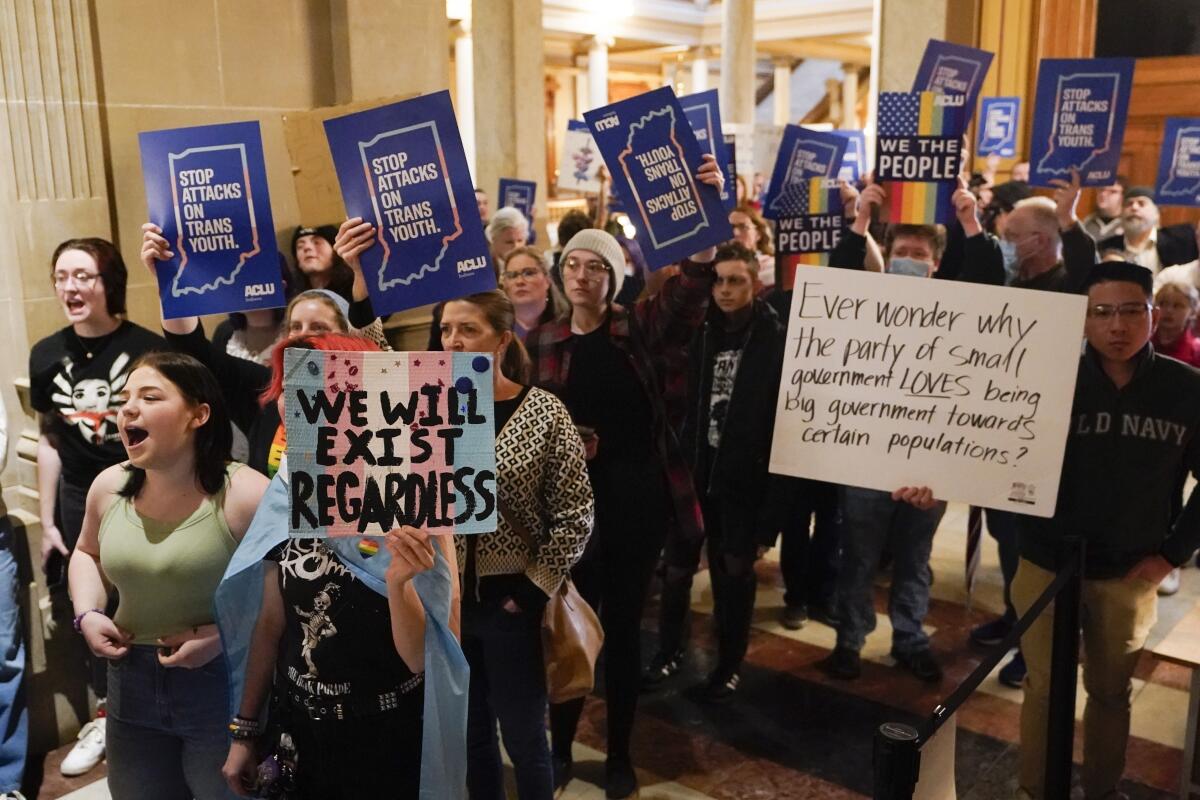
Indiana’s ban on gender-affirming care for minors has taken a significant step forward as a federal appeals court lifted a temporary injunction, allowing the law to go into effect. The decision, handed down by a panel of justices on the 7th Circuit Court of Appeals, marks the latest development in a legal challenge brought forth by the American Civil Liberties Union of Indiana against the ban, which was enacted amid a broader trend of GOP-led efforts to restrict LGBTQ+ rights across the nation.
Legal History and Injunction
Originally scheduled to take effect on July 1, 2023, the ban faced a temporary setback when U.S. District Court Judge James Patrick Hanlon issued an injunction just a month before its implementation. The injunction prevented most aspects of the law from being enforced, allowing only the prohibition on gender-affirming surgeries to take effect while blocking restrictions on hormone therapies, puberty blockers, and out-of-state communication regarding gender-affirming care for minors.
Reactions and Legal Path Forward
In response to the appeals court’s ruling, the ACLU of Indiana expressed dismay, describing the decision as “heartbreaking” for transgender youth, their families, and healthcare providers. The organization reaffirmed its commitment to continuing the legal battle until the ban is permanently overturned, emphasizing the importance of creating a safer environment for all families in Indiana. The composition of the three-judge panel that issued the order, comprising justices appointed by both Republican and Democratic presidents, underscores the complexity of the legal landscape surrounding LGBTQ+ rights.
Medical Community and Opposition
The lawsuit, brought forth by the ACLU of Indiana on behalf of transgender youths and a healthcare provider, argued that the ban violated constitutional equal protection guarantees and infringed upon parental rights in medical decision-making. Major medical groups, including the American Academy of Pediatrics and the American Medical Association, have consistently opposed such restrictions, affirming the safety and efficacy of gender-affirming care for minors when administered appropriately.
National Context and Legal Challenges
Indiana’s ban is part of a broader wave of legislation enacted in at least 23 states to restrict or ban gender-affirming medical care for transgender minors. Legal challenges against similar bans have ensued across the country, with varying outcomes. While a federal judge struck down Arkansas’ ban as unconstitutional, temporary injunctions are in place in states like Idaho and Montana, blocking enforcement of the restrictions pending further legal proceedings.

The lifting of the injunction in Indiana signals a significant development in the ongoing legal battle over gender-affirming care for minors, underscoring the complex intersection of legal, medical, and ethical considerations surrounding LGBTQ+ rights and healthcare access. As the legal landscape continues to evolve, stakeholders remain engaged in efforts to protect the rights and well-being of transgender youth across the nation.